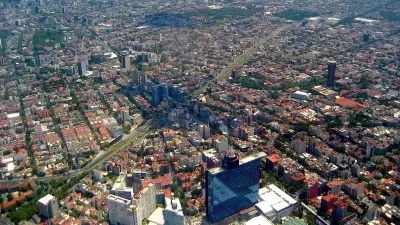Luis Alberto Moreno explores how Facebook and Twitter are improving cities in the developing world, as the governments of many Latin American municipalities take advantage of the explosive growth of social media to engage with citizens.

Moreno surveys the growing use of social media by governments of Latin American cities large and small as the "[u]se of social media [grows] at a breathtaking pace across the region." For an example, he turns to the Twitter feed of the mayor of Mexico City. "At first glance, it looks like a strange mix of unedited rants by aggravated citizens and upbeat public relations by an ambitious mayor. But a sustained look shows that a surprising number of these virtual conversations follow a cycle - citizen complains, mayor listens, city solves the problem - that until recently would have seemed utopian for an overpopulated and underfinanced metropolis in the developing world."
"The governments of virtually all large Latin American cities now use social media to engage with citizens, and smaller cities are quickly following suit," says Moreno. "The Inter-American Development Bank recently found that social media is used by governments in 70 percent of the region´s 140 'emerging cities' (those having 100,000 to 2 million residents and above-average economic growth rates)."
Looking at the prospects for the continued use of such platforms in the future, Moreno believes that, "[a]t a minimum, these technologies will give new vitality to the ancient ideals of participation and accountability. At best, they might shorten the wait for new lights in a darkened park. In either event, the next mayor of Mexico City, like others across the developing world, will not really have the option of ignoring social media. That's where people are choosing to speak, and where they expect to be heard."
FULL STORY: How Facebook and Twitter Are Making Developing World Cities Better

Planetizen Federal Action Tracker
A weekly monitor of how Trump’s orders and actions are impacting planners and planning in America.

Map: Where Senate Republicans Want to Sell Your Public Lands
For public land advocates, the Senate Republicans’ proposal to sell millions of acres of public land in the West is “the biggest fight of their careers.”

Restaurant Patios Were a Pandemic Win — Why Were They so Hard to Keep?
Social distancing requirements and changes in travel patterns prompted cities to pilot new uses for street and sidewalk space. Then it got complicated.

Albuquerque Route 66 Motels Become Affordable Housing
A $4 million city fund is incentivizing developers to breathe new life into derelict midcentury motels.

DC Area County Eliminates Bus Fares
Montgomery County joins a growing trend of making transit free.

Platform Pilsner: Vancouver Transit Agency Releases... a Beer?
TransLink will receive a portion of every sale of the four-pack.
Urban Design for Planners 1: Software Tools
This six-course series explores essential urban design concepts using open source software and equips planners with the tools they need to participate fully in the urban design process.
Planning for Universal Design
Learn the tools for implementing Universal Design in planning regulations.
Heyer Gruel & Associates PA
JM Goldson LLC
Custer County Colorado
City of Camden Redevelopment Agency
City of Astoria
Transportation Research & Education Center (TREC) at Portland State University
Camden Redevelopment Agency
City of Claremont
Municipality of Princeton (NJ)


























